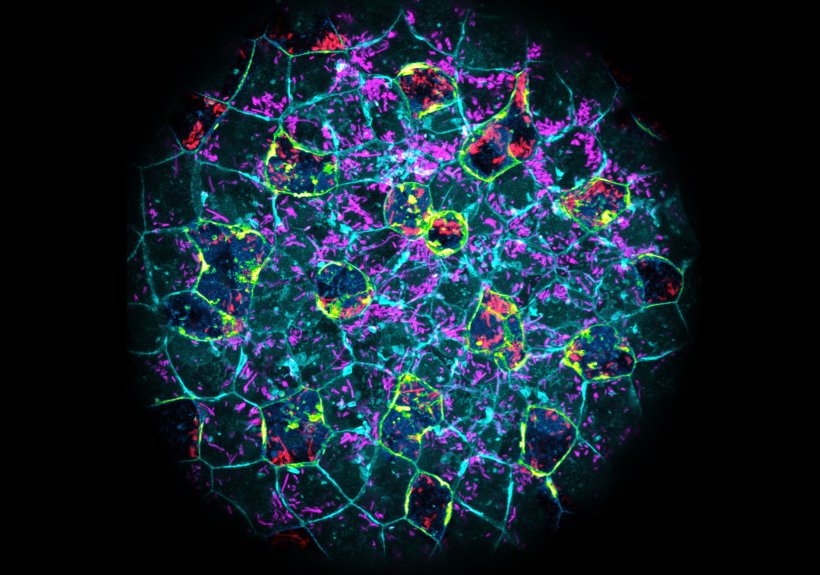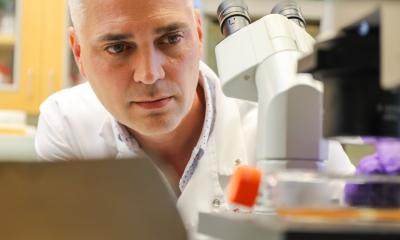
Image source: CSIC; Joan Roncero-Carol
News • Research into immunocompetence
Early infection defense mechanism discovered in embryos
Research led by scientists from the Institute of Molecular Biology of Barcelona (IBMB) of the CSIC and the Bellvitge Biomedical Research Institute (IDIBELL) has managed to film how a few days-old embryos defend themselves from a potential infection by bacteria.
The work is published in the journal Cell Host and Microbe.
Specifically, the researchers have been able to see how zebrafish embryos use cells present on their surface, known as epithelial cells, to ingest and destroy bacteria through a process called phagocytosis, similar to that carried out by white blood cells. Crucially, scientists could observe that this ability to eliminate bacteria is also present in human embryos.
[This research] could help us, in the future, to improve fertility, prevent embryonic malformations and develop new reproductive therapies
Esteban Hoijman
Using state-of-the-art microscopy techniques, the research shows how cells capture Escherichia coli and Staphylococcus aureus bacteria through small protrusions of their membrane, in which the protein Actin is involved. "Our research shows that, at the beginning of development – before implantation in the uterus and before the formation of organs – embryos already have a defense system that allows them to eliminate bacterial infections," says Esteban Hoijman, researcher at IBMB-CSIC and IDIBELL, leader of the research.
This process, the scientist explains, works as a phagocytosis mechanism, activates immunity genes in these cells, effectively eliminates bacteria and contributes to the correct embryonic development in case of infection. "This system could represent the origin of immunity. The study reveals the first interaction between the newly forming organism and its biological microenvironment," adds Hoijman, who heads the Embryonic Cell Bioimaging laboratory.
Besides the CSIC and the IDIBELL, the research has involved scientists from CRG Barcelona, Pompeu Fabra University (UPF), the Institute for Bioengineering of Catalonia (IBEC), the University of Barcelona (UB), the Dexeus University Hospital and ICREA.
At the beginning of development, embryos are exposed to multiple changes in their environment which can pose a threat, since embryos have not yet developed the immune system to protect them. In the uterus, infections have a high incidence and are associated with infertility. However, it has remained a mystery until now how an embryo reacts when it encounters a bacterium. This work reveals that immune capacities of an embryo begin long before the existence of white blood cells, and "could help us, in the future, to improve fertility, prevent embryonic malformations and develop new reproductive therapies," explains Esteban Hoijman.
In this sense, the finding also highlights the important need to know in more detail the population of bacteria that can colonize the uterus, differentiating the invaders (and possible pathogens) from potential resident bacteria that could have beneficial effects on reproductive physiology.
Source: Spanish National Research Council
24.06.2025





